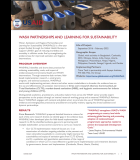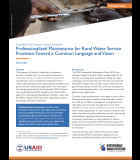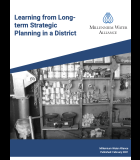Pastoralist Resiliency Improvement & Market Expansion (PRIME)
The Pastoralist Areas Resilience Improvement and Market Expansion (PRIME) project, funded under the United States government’s Feed the Future initiative, was launched in October 2012 in one of the most shock-prone areas of the world, the drylands of Ethiopia. A key objective of the project is to enhance the resilience of households to shocks. In particular, it aims to enable households to withstand and recover from the recurrent climate-related shocks—mainly drought—to which they are subjected.
Activity Description
USAID-PRIME will enhance availability and access to key livestock inputs and improve stakeholders’ capacity to sustainably supply goods and services to the market. The activity will stimulate investment along the value chains of the currently under-tapped livestock sector through facilitative efforts and match funds of promising investments targeted toward increased competitiveness and improved market access. In addition to improving access to finance for all market actors, USAID will provide business support services to enterprises, producers, and trade associations for increased access to and adoption of market information, more productive and appropriate technologies, and better marketing and management practices. Finally, through market-based crisis response mechanisms, the activity will work to increase the resilience of market actors to external shocks that threaten livelihoods.
The Natural Resource Management and Climate Change component of the USAID-PRIME activity emphasizes collaboration and facilitates multi-stakeholder engagement by bringing together government, traditional institutions, and community representatives. All risk assessments, resource mappings, and rural appraisals are jointly reviewed in a participatory manner to ensure the development of community-based solutions.
The USAID-PRIME consortium uses the Market Systems Approach to analyze the support functions (services) and enabling environment essential for increased learning, growth, inclusion and transformation of markets critical in the drylands. Only by carrying out facilitative activities that strengthen key support functions and the enabling environment can the system provide the skills training, value chain financing, value adding technologies, business support services, and supportive policies essential for more competitiveness, inclusive and sustainable economic growth.
Given that pastoral systems are dynamic, complex, and endangered, interventions that seek to bring about sustainable improvements to pastoralist livelihoods should be focused on continuous learning and identifying innovative solutions. The USAID-PRIME consortium therefore aims to facilitate evidence-based learning through on-going monitoring and evaluation activities and key research initiatives to improve the policy environment of USAID-PRIME’s activity areas.
Chronic malnutrition is the single largest contributor to mortality for children under the age of five in Ethiopia, and children in pastoralist areas are especially vulnerable. The food security of pastoralist households is increasingly threatened by a degrading natural resource base, and parents often lack sufficient information about diet diversification and good nutrition. USAID-PRIME focuses its efforts during the crucial window of the first 1,000 days of a child’s life and will follow USAID’s three pillars of food security: access, availability, and utilization. The activity will achieve nutritional impact by increasing demand for nutritious foods and leveraging activities under PRIME’s other focus areas, such as efforts to increase livestock productivity.
Expected Outcomes
- Improved productivity and competitiveness of livestock and livestock products;
- Enhanced pastoralists adaptation to climate change;
- Strengthened alternative livelihoods for households transitioning out of pastoralism;
- Enhanced innovation, learning and knowledge management;
- Nutrition status of households increased through evidence based interventions
Actual Outcomes
- Public veterinarian services were strengthened in their capacity to conduct regular vaccination work through two vaccination campaigns covering 811,000 animals of various species and benefiting over 12,000 households and in strengthening animal health surveillance and reporting.
- 17,330 households received seasonal climate advisories.
- The rehabilitation of 16 water points (1 microdam, 7 ponds, and 8 birkades) were completed, supporting 22,910 households improved access to water.
- In year 3, a total of 407 health workers and 2571 community members received ENA and or IYCN trainings in the Afar, Somali, and Oromo Regions.





